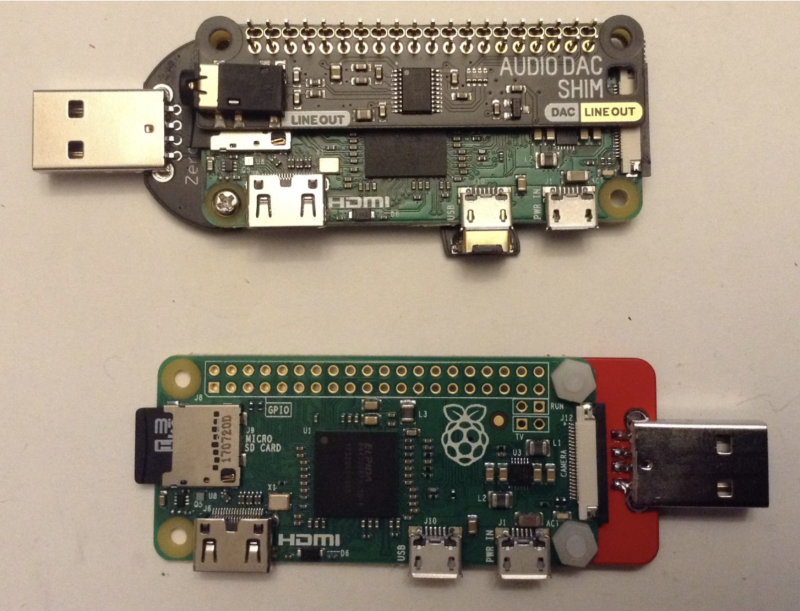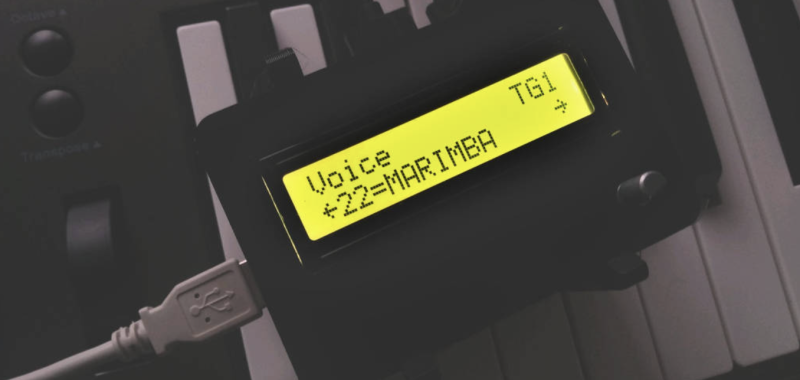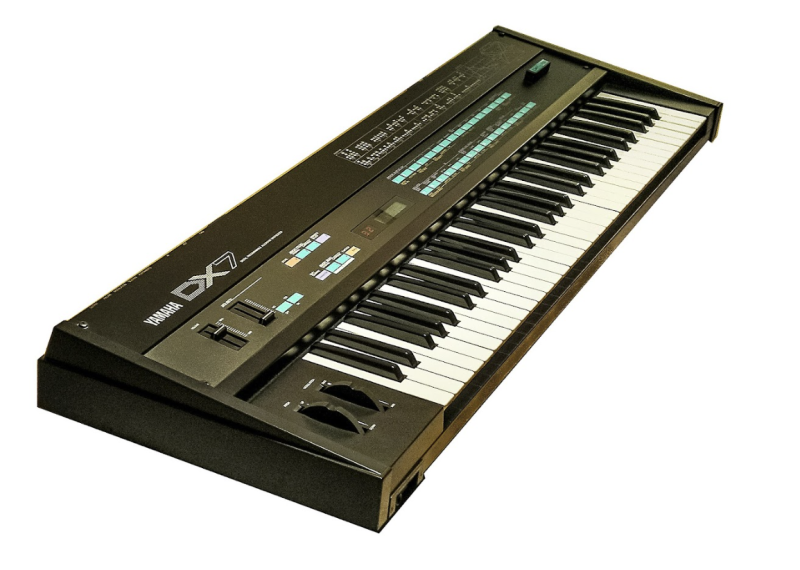Mini Dexed ports the concepts of the digital synthesiser to Python and Raspberry Pi, and is the brainchild of Simon Peter (aka Probono), who describes it as a ‘Dexed FM synthesiser similar to 8x DX7 (TX816/TX802) running on a bare-metal Raspberry Pi (without a Linux kernel or operating system)’ to produce eight tones. Voices can be programmed using a DX series editor using MIDI sysex.
Emphasising the importance of Yamaha’s DX7, composer and MusicRadar journalist OSC Steve argued: “it’s possible to categorise 1980s music into two eras; the pre-DX7 era and the post-DX7 era, such was the widespread use of this new instrument and its distinct timbral character”.

Bringing DX7 to life
Probono has been experimenting with Raspberry Pi, for home automation and 3D printing as well as digital music, since its launch in 2012. He began the Mini Dexed project because he was keen to make a “real musical instrument” rather than something that felt like a computer. He is in awe of the original developers of FM synthesisers and says Mini Dexed “stands on the shoulders of giants”. To recreate their sounds he was looking for a commonly available, inexpensive microcontroller with lots of computing power and is “using Raspberry Pi more like an embedded microcontroller than a regular computer”. Quick boot times, small code size and overall simplicity are further hallmarks. The project began in 2022 during a discussion in the Circle project, when Probono asked for guidance on how to go about integrating an existing synthesiser engine. Another maker, Rene Stange produced Circle, a library for code that runs it in a bare-metal Raspberry Pi environment, while Holger Wirtz ported the Dexed synth engine for use with microcontrollers, creating a framework specifically for this scenario.

Future sounds
Mini Dexed is a flexible platform for experimenting with electronic sound. Once it had been ported for microcontroller use, Probono deliberately built Mini Dexed around Raspberry Pi and commonly available, inexpensive hardware components. He says a Raspberry Pi Zero 2 version could be created for less than €50. Hardware choices and whether to use a dedicated audio DAC are down to individual makers’ preferences, while suitable connections for the audio partly depend on which Raspberry Pi you’re using. Those that can be configured to use USB Gadget Mode instead of USB Host mode (currently Raspberry Pi 3 and 4 but not yet 5) allow MiniDexed to be used as a USB MIDI device and accept audio streaming from MIDI keyboards, for example. “As someone who is interested in experimental music, I could imagine hooking up all sorts of sensors via MIDI to Mini Dexed, in order to create an immersive soundscape that changes as its surroundings change.”
Mini Dexed has also been extended to work with external DACs (making it usable with Pico and Raspberry Pi 1 and 2, too) as well as adapted to support 16 voices by blogger Kevin, who has contributed to this fantastic synth’s development and raised its profile. Probono specifically mentions the potential of Raspberry Pi Pico which Kevin was able to implement: see magpi.cc/picodexedgit or magpi.cc/dx7usbdongle.

“While the project can be built without any extra hardware, a simple display and a rotary encoder and/or some buttons make it much easier to use, and an inexpensive digital to analogue converter increases sound quality significantly.” Probono says “The real cost is the time invested into developing, building, refining, testing, discussing – and the MiniDexed community collectively has put in, and is still putting in, a lot of time and effort, which I am very grateful for.”
“I am still trying to wrap my head around how to design sound from scratch using FM, it’s probably a learning journey for a lifetime.”







